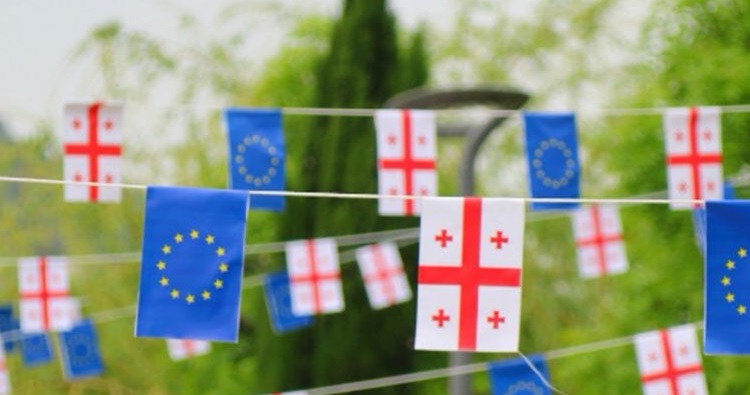Govt’s activities serve “main ambitious goal” - achieving “significant progress” on EU integration path - state programme

Within the framework of the enlargement package, Georgia places emphasis on deepening relations with countries pursuing European integration, fostering mutual exchange of experiences, and actively positioning itself as a candidate country amid ongoing EU institutional reforms. Photo: Nino Alavidze/Agenda.ge
The activities carried out by the Georgian Government on the European Union integration path, as well as the use of new opportunities for joining the bloc, serve “the main ambitious goal” to achieve “significant progress” in becoming a member of the EU, the Government’s new state programme says.
The programme, titled For Building the European State and published on Friday by the Georgian Parliament, notes that the granting of EU candidate status to Georgia in 2023 has elevated the country’s development agenda to “a completely new level”, as well as created new opportunities for foreign policy goals.
It is stressed in the document that “to open accession negotiations [with the EU], Georgia will continue to work with EU institutions and member states”, adding the country “is actively engaged” in fulfilling the priorities outlined by the European Commission in this regard.
The effective implementation of the Association Agreement, incorporating the Deep and Comprehensive Free Trade Area, is also highlighted in the programme, stressing the importance of taking “active steps” towards integration into the EU's single market to obtain “tangible results” for citizens.
Taking into account the geopolitical situation in the world, Georgia’s role in developing transit and energy routes connecting Europe and Asia is increasing. [...] It is an important task to further strengthen Georgia’s transit function with the EU and receive mutual benefits from the membership in the EU Energy Union and participation in the Trans-European Transport Network”, the state programme emphasises.
Georgia is committed to realising flagship initiatives outlined in the economic and investment plan of the Eastern Partnership, the document says, adding sectoral integration efforts include “active participation” in EU programmes and collaboration with specialised agencies to ensure legislative and institutional alignment with the bloc’s standards across various fields.
The programme also highlights the continued collaboration with the EU on security and defence, particularly maritime security in the Black Sea region, aligned with the priorities set out in the “EU's Strategic Compass”.
Within the framework of the enlargement package, Georgia places emphasis on deepening relations with countries pursuing European integration, fostering mutual exchange of experiences, and actively positioning itself as a candidate country amid ongoing EU institutional reforms.
It is important for Georgia to elevate bilateral relations with European countries to a strategic level and deepen partnership ties with allied nations, as the country navigates as an EU candidate country”, the document reads.
Georgia continues to pursue a regional policy based on “balanced and mutually beneficial” partnership cooperation, the programme says, noting that the efforts to promote peace, cooperation, and stability in the South Caucasus will continue, with a focus on strengthening ties with neighbouring partner states - Turkey, Azerbaijan and Armenia, fostering bilateral relations and progressing border delimitation and demarcation in alignment with national interests.
According to the document, amid the need for diversified transport and energy corridors, Georgia sees the Middle Corridor as a pivotal route connecting Asia and Europe and is committed to enhancing energy, transport, and digital connectivity with the EU, while also bolstering ties with Asian and Middle Eastern states.
The programme also highlights the importance of strategic partnership with China, including maintaining “a positive agenda” with the country by deepening trade and economic, people-to-people and cultural ties, as well as developing cooperation in education and in other fields.
 Tweet
Tweet  Share
Share